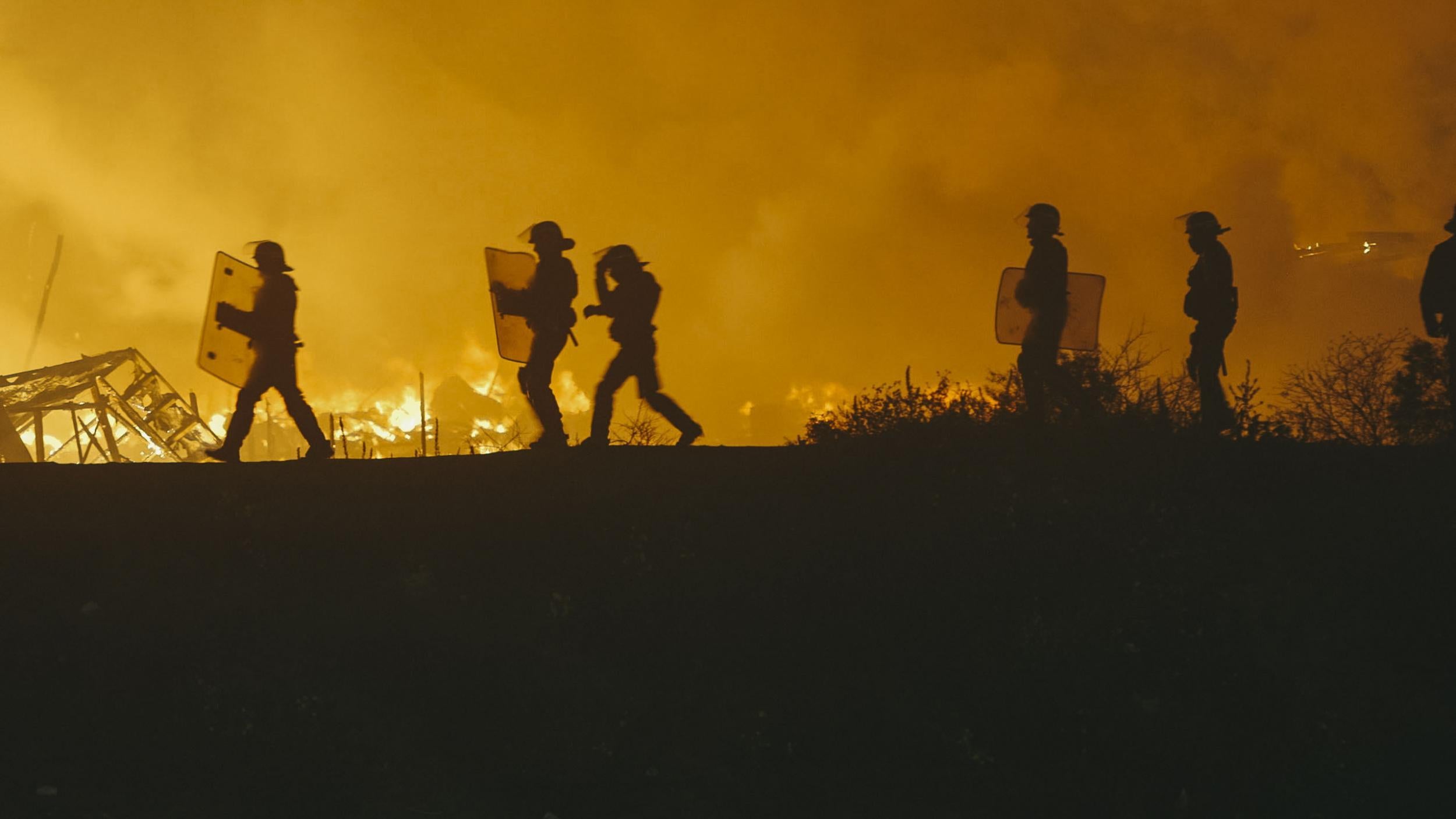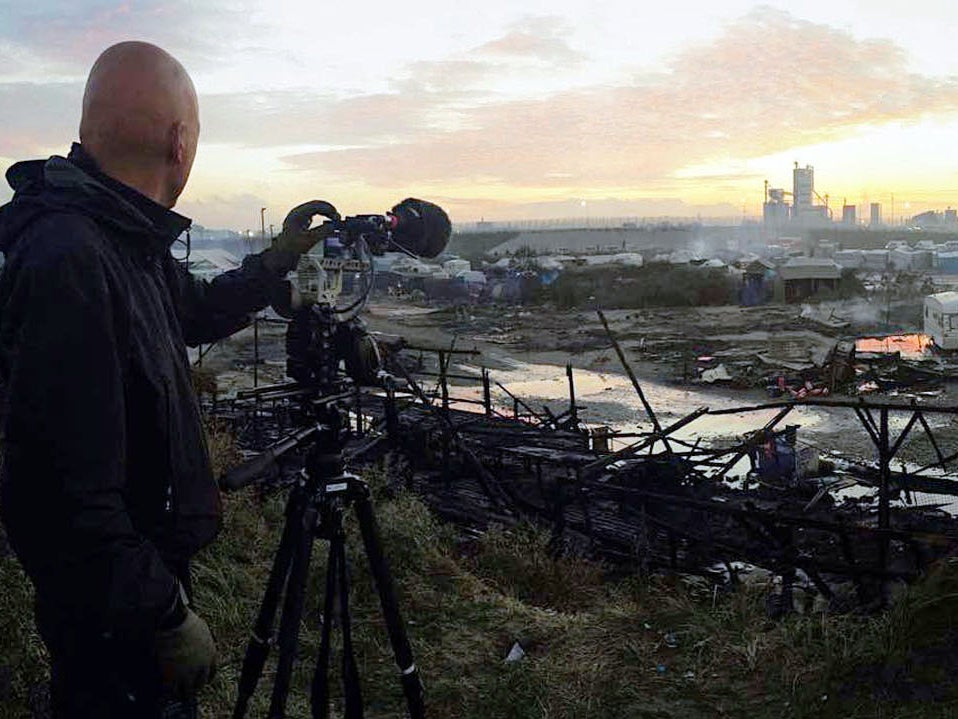TV review, Calais: the End of the Jungle (BBC2): Idealism and heroism, but also tough questions
Plus: Retreat: Meditations from a Monastery (BBC4)

Your support helps us to tell the story
From reproductive rights to climate change to Big Tech, The Independent is on the ground when the story is developing. Whether it's investigating the financials of Elon Musk's pro-Trump PAC or producing our latest documentary, 'The A Word', which shines a light on the American women fighting for reproductive rights, we know how important it is to parse out the facts from the messaging.
At such a critical moment in US history, we need reporters on the ground. Your donation allows us to keep sending journalists to speak to both sides of the story.
The Independent is trusted by Americans across the entire political spectrum. And unlike many other quality news outlets, we choose not to lock Americans out of our reporting and analysis with paywalls. We believe quality journalism should be available to everyone, paid for by those who can afford it.
Your support makes all the difference.“Jungle” is the label that was stuck, with all its unfortunate racist connotations, to the encampments in the French port of Calais that built up over decades and became notorious and a symbol of political failure, and of which there is virtually now no physical clue to its existence. It was a home and a community of sorts for about 10,000 of our fellow human beings in the months before its clearance this time last year.
Calais: the End of the Jungle told the story of the camp in its last days. We heard from those in and around it to whom it was something more than a “jungle”. For a trucker, risking injury and fines (£2,000 per migrant discovered in his vehicle), it became “the road of fear”. The local commissioner of police explained it was ‘a waiting room” for those whose “only wish is to jump on a lorry to the UK ... the dream location”. To one volunteer reflecting wistfully on its imminent destruction, it was home – where she “hung out, drank chai and listened to music”.
Most of the witnesses were British aid workers. At times, I confess, I wondered whether some had edged into a slightly condescending position, the modern-day equivalents of 19th century missionaries in Africa, or the well-meaning young chaps who’d go out to be district commissioners in the colonies – paternalistic if good-hearted and sincere.
Occasionally there was a bit too much of a boho vibe going on, including one individual who’d completed an almost satirical trajectory from antiques valuer to refugee worker by way of a spell in landscape gardening. For some it was almost as if, deprived of the gap-year opportunity to do the Silk Road trail as their parents and grandparents might have in happier times, Afghanistan had instead turned up almost on their own doorsteps.
Overgrown hippies or not, these brave and dedicated volunteers certainly did plenty of good, saving lives and preventing illness and disease. When, on the day of their eviction, the migrants and refugees torched the place, the aid workers took it upon themselves to turn into amateur firefighters, armed only with an old jeep and a couple of jet washers to dowse the conflagrations and pick the gas canisters out of the flames. No one else was going to help, so they did. They were heroic.

I was also impressed that the volunteers, whatever about idealism, had actually stopped to ask themselves some tough questions about whether all the sleeping bags, hot meals and clothes they’d dished out, and indeed the rough and ready MDF shacks they’d knocked up, didn’t simply attract more people to risk their lives to come to Europe. The answer was plain: the refugees, children included, were coming whether or not there might be a bowl of hot rice at the end of their terrifying odyssey. The demolition of the Jungle will not stop them coming, either.
One telling account came from a 27-year-old Eritrean who eventually won his personal lorry lottery and crossed the Channel. According to him, the “push factor” from his own country was indefinite compulsory military service – effectively forced labour. So, no, not war or famine and a literal threat to life, but, if correct, still a reasonable claim for asking for asylum. On the positive side, he cited the English language, and a genuine, if naive, conviction that Britain is a land of opportunity. With such determination he showed what we should always remember: that refugees and migrants are far from feckless and lazy.
In a perverse way you could also admire the military-style organisational ability of the gangs of mostly young men, deploying sophisticated tactics to outwit the police and create roadblocks and traffic jams all around the port. Don’t get me wrong: they were unforgivably risking their own and others’ lives – I merely mean that they weren’t stupid or incompetent, and their energies could surely be directed towards some better directed for good. An imaginative British government would hire them to help sort out some of labour shortages on building sites, farms and the like we suffer from. Which does beg a few questions, don’t you think?
Retreat: Meditations from a Monastery was what you might call a bit of a Trappist documentary. Just like the austere existence of some religious orders, this programme, all about the Benedictines, was a very spare piece of work, with no voiceover commentary and very little spoken testimony from the monks themselves. These are the riskiest documentaries to make, which is why they are so seldom seen. All we had was a few captions and quotations, including “one who never stops talking cannot avoid falling into sin”, from Saint Benedict himself.
Beautifully and unobtrusively filmed, this was an exemplar of its type, a universe away from the gratuitous celebrity, gratuitous music and gratuitous editorialising that crowds in on so many other programmes. In fact, watching the monks pray, chant, craft and potter around their garden was a bit like going on a sort of television retreat itself, like those videos you can buy of a fire burning or fish in a tank, all restful and encouraging contemplation. A world away, too, from the scandals of child abuse, mismanagement and corruption in the Roman Catholic Church, which must yearn for some peace and respite of its own from temporal and spiritual problems.
Join our commenting forum
Join thought-provoking conversations, follow other Independent readers and see their replies
Comments